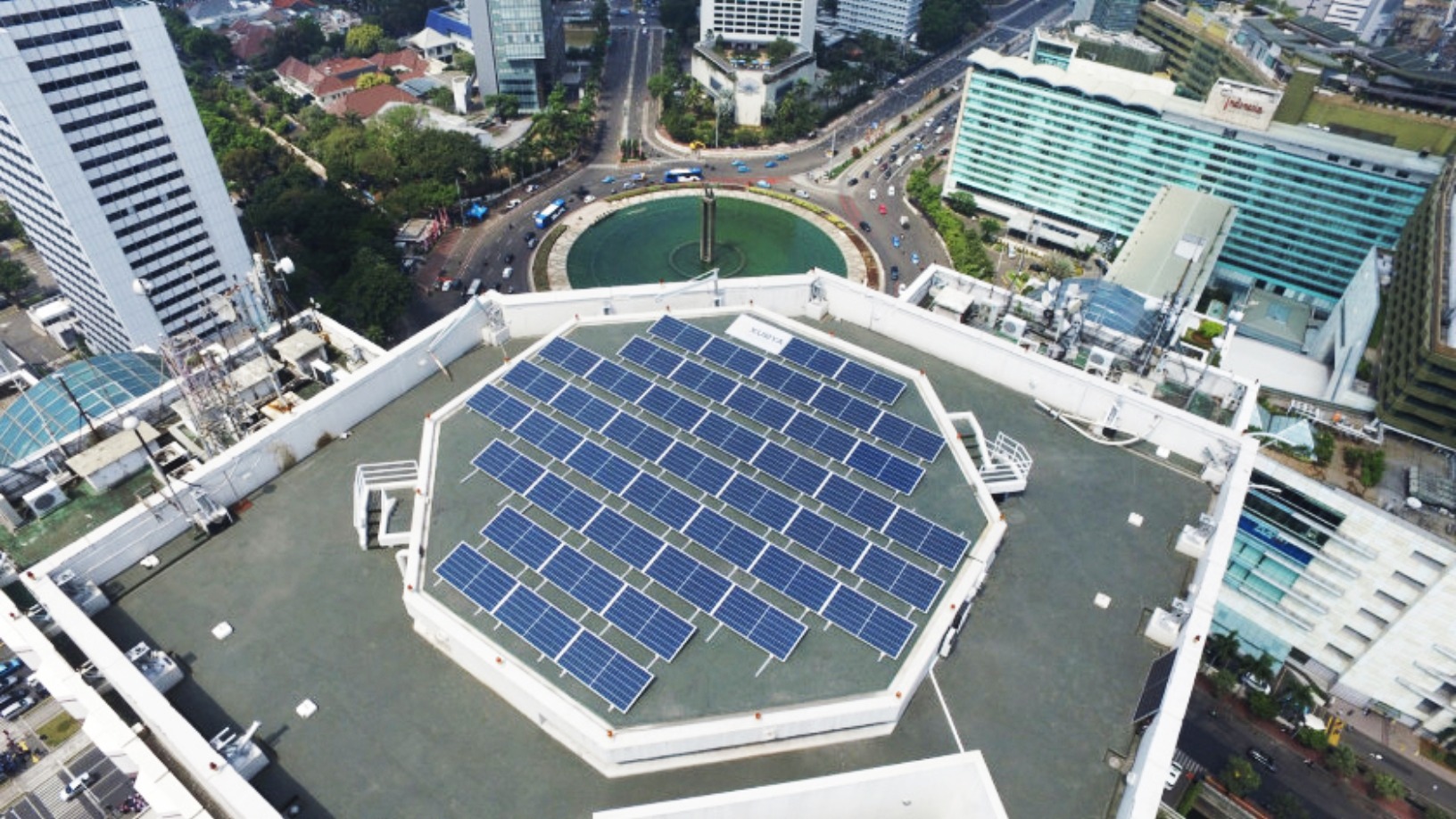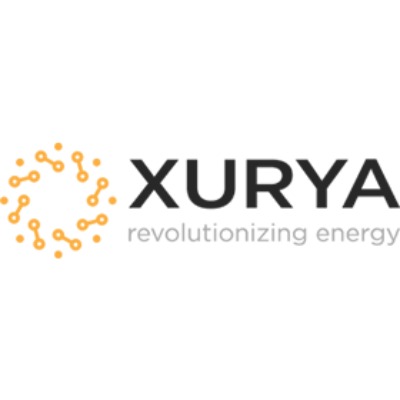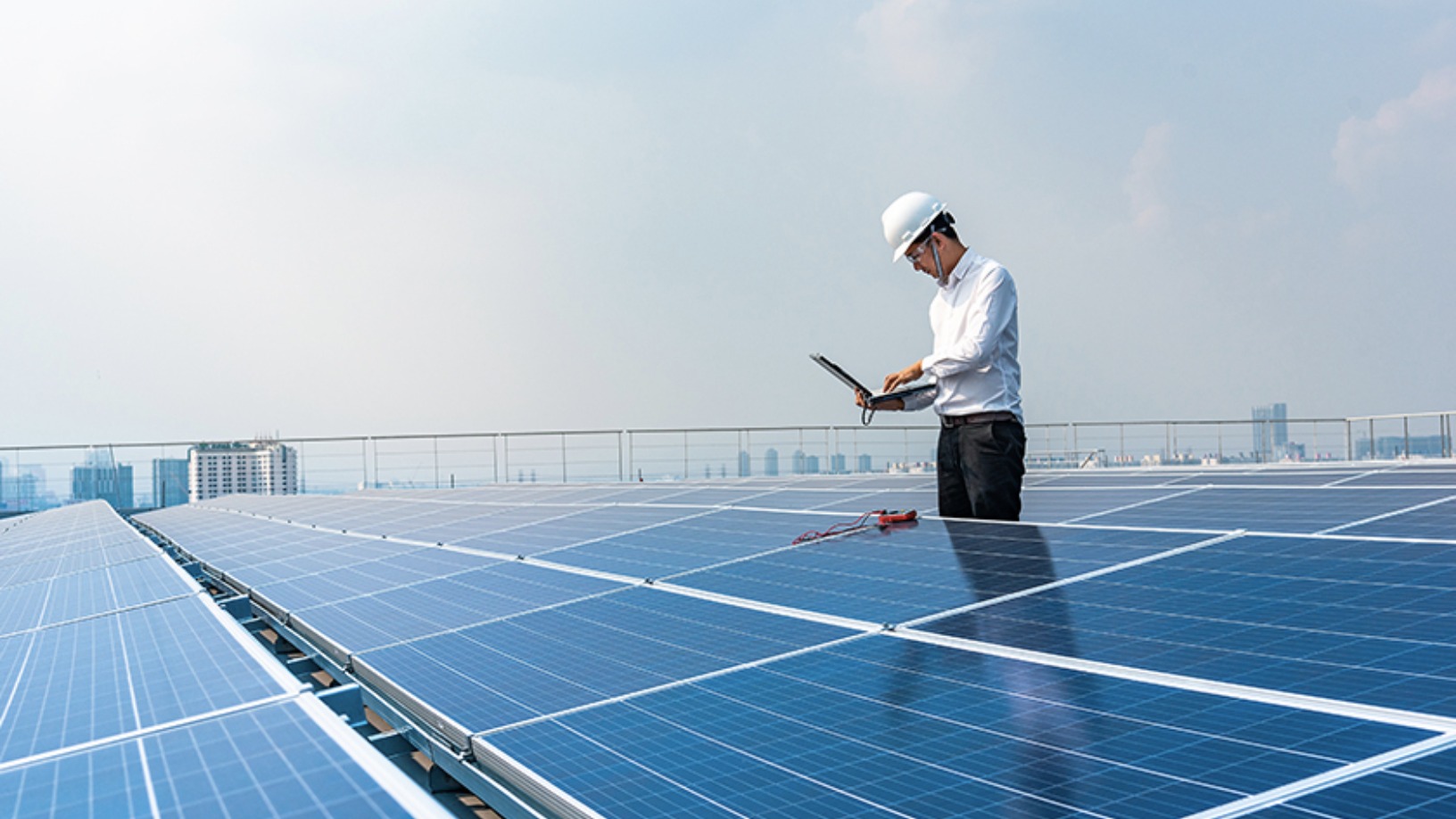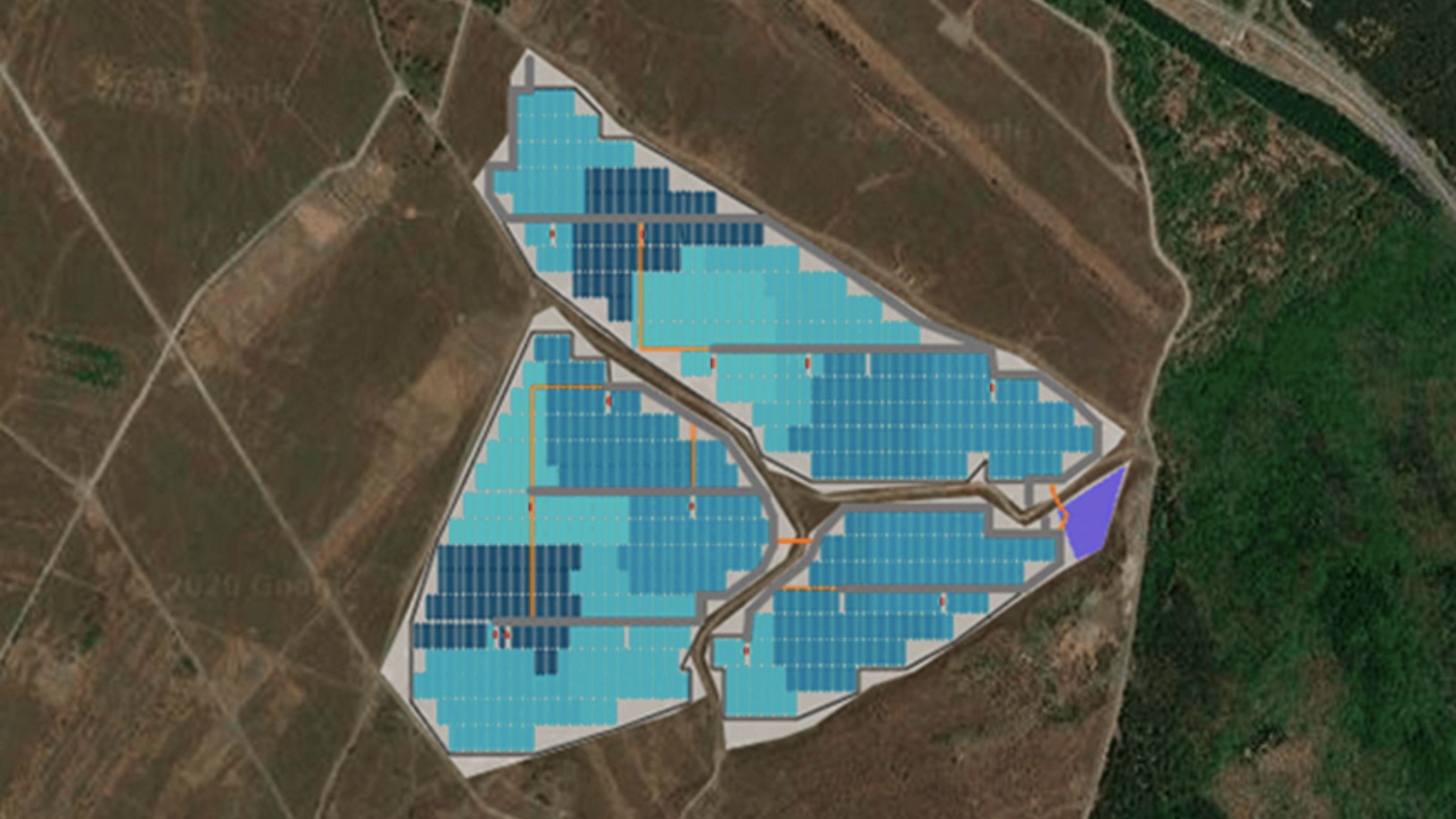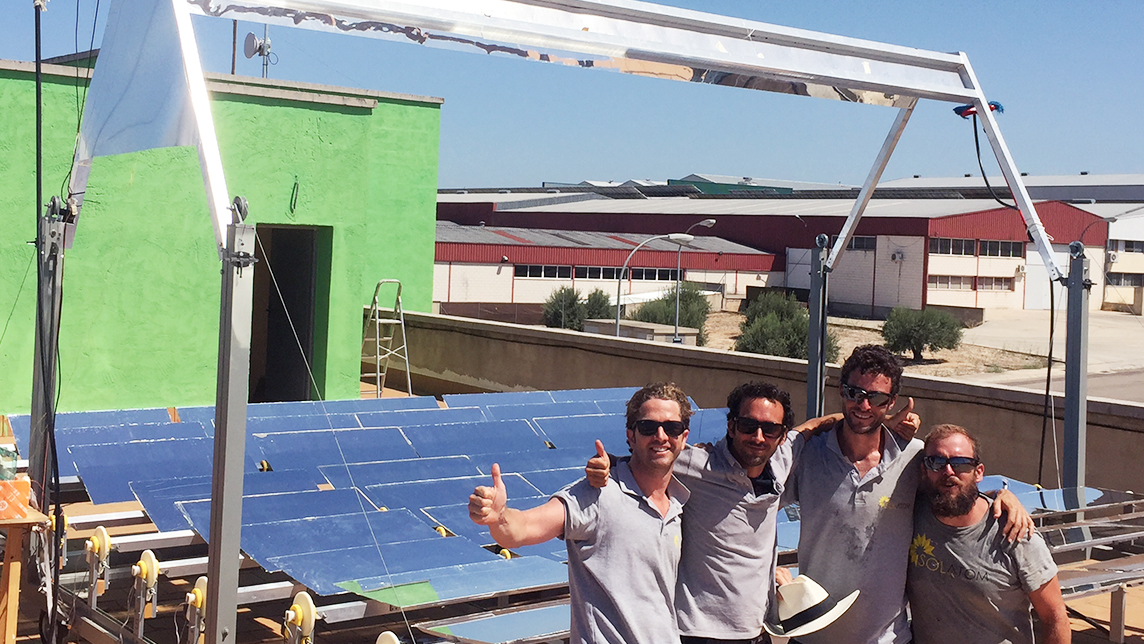Unlike typical solar panel vendors that sell and install solar power systems, Indonesian startup Xurya offers solar power to corporate clients as Hardware-as-a-Service (HaaS) via a leasing model. No down payment is needed, allowing companies to install solar panels with no upfront costs.
Since its launch in 2018, Xurya has delivered 20 projects with a multi-megawatt power generation portfolio. It has also added some prominent names to its client list, including unicorns Tokopedia and Traveloka, logistics giant MGM Bosco and a Jakarta shopping mall, Plaza Indonesia.
According to Xurya’s Director of Technology and co-founder, Edwin Widjonarko, clients cut 15–20% off their electricity bills after adding its solar panels to their roofs. Feedback has been “very positive” and about 30% of projects are from client referrals, Widjonarko said in an interview via online call.
Last month, Xurya became the first to receive investment from the Southeast Asia Clean Energy Facility (SEACEF), a climate impact investment fund launched in June by Singapore-based Clime Capital, at an initial size of $10m and focused on propelling new projects in Vietnam, Indonesia and the Philippines. Widjonarko declined to reveal the amount raised.
Up to 60% savings
For many prospective users of solar power, be it in home or commercial settings, the initial cost of buying and installing the solar panels can be a big deterrent. To lower that barrier to adopting solar power, Xurya opts for the HaaS model with its flexible down-payment options.
Its end-to-end service model includes the full range of services, from initial consultations and surveys to installation, operation and maintenance, as well as equipment replacement during the lease period. Clients can opt for no down payment or a flexible down payment. They can also opt to buy the system outright during the lease period.
During the consultation phase, Xurya provides a projection on how much savings the solar power system can provide, based on factors like local weather and climate as well as system wear-and-tear. This projection, along with the client’s choice of down payment, is used to determine lease payments. Whenever the system fails to perform at the projected level – due to cloudy skies or technical errors, for example – and generates lower-than-expected power, the lease payments will correspondingly fall.
A client’s net savings during the lease period depend on several factors, including how much electricity used. Smaller commercial buildings, for example, stand to save more than factories and warehouses with 24/7 operations.
“One client operates an office building that's open from 7am to 6pm, so electricity is used only when the solar panels are generating power. In that particular case, they save close to 60% on power bills," said Widjonarko, who believes that cost is the biggest impediment to solar power adoption, which should not be an obstacle to go green.
The Indonesian solar power industry is growing with more local and foreign players. To stay competitive, Xurya is positioning itself as not just a vendor but also as a consultant. It recruits top talents in engineering, such as graduates of Institut Teknologi Bandung and government scholarship holders.
“Half of our team members are engineering graduates. We pick the cream of the crop. Internally, we share knowledge and allocate time for personal development,” said Widjonarko. The company is also building up a strong understanding of the regulations and local consumer preferences.
“Indonesian customers place great importance on after sales service,” he added.
Getting the timing right
Widjonarko, who has a PhD in Material Physics from the University of Colorado Boulder and has worked on third-generation solar cell research projects for the National Renewable Energy Laboratory in Colorado, started thinking about the economics of solar power when he saw the US Department of Energy pushing for projects to decrease the cost of solar power systems to $1 per watt.
He discussed the possibility of starting a solar power business in Indonesia with longtime friend Gusmantara Ekamukti Himawan, who was then working at a hedge fund in the US, handling alternative energy investments. The two decided that their plans would have to wait until the price for solar power systems in Indonesia drops to $1 per watt.
“In 2016, the price for solar modules in Indonesia went down to almost $1 per watt. We began talking about possible business models and local intricacies that could influence our business model,” said Widjonarko. By this time, Himawan had returned to Indonesia and was CFO at e-commerce startup Orami.
The awaited moment came in 2018. Widjonarko and Himawan set up Xurya with Philip Effendy, who was then an investment associate at East Ventures, a Jakarta-based early-stage VC. Himawan quit Orami to work full time at Xurya as MD; while Effendy is VP of Operations.
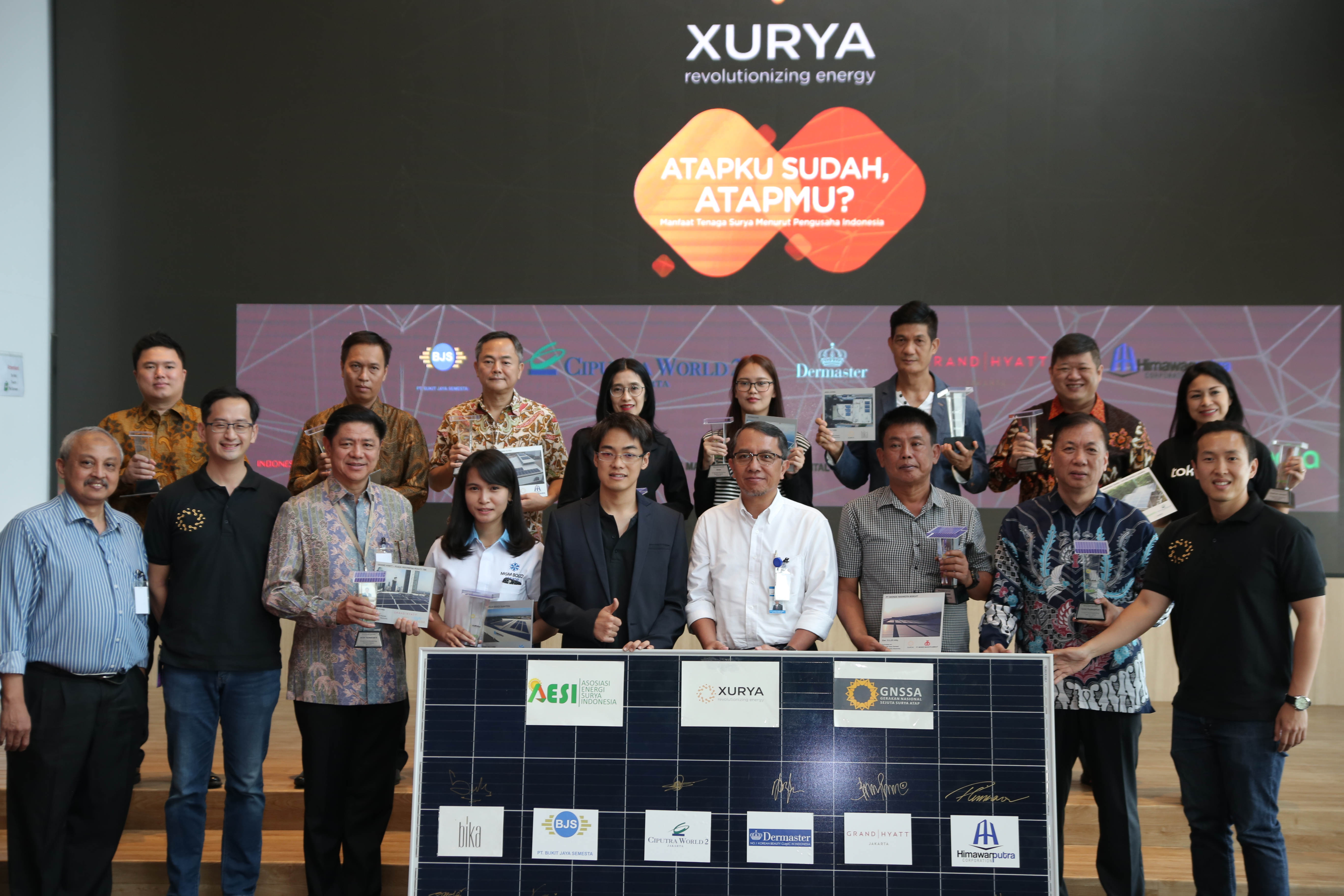
Lack of awareness
Discussing the challenges that Xurya faces as it expands, Widjonarko said customers’ concerns have changed since they started in 2018. At that time, prospective clients were mostly worried about the lack of clear regulations regarding solar power. That is no longer the case for commercial users of solar energy these days, he noted.
However, it is not necessarily the same for residential customers, who, according to Widjonarko, face complicated certification processes and inspections when installing rooftop solar systems. In addition, Persero, the state power company that has a monopoly on electricity distribution in Indonesia, will only pay for 65% of electricity generated from residential rooftop solar panels. This makes it less economical for homeowners to use solar panels for an on-grid system and for this reason, Xurya hasn’t entered the residential market.
A more fundamental problem has also become evident: most are unfamiliar with solar systems and the reasons for switching to solar. “Many people think of solar cells in terms of water heating,” Widjonarko said, referring to solar-powered water heaters like SolaHart, which are found in some Indonesian homes. “We got a lot of questions about that well into 2019, even among big industrial players, which later became our clients.”
This is reflected in client priorities. Most prospective users are concerned about whether solar power can help them save on electricity bills. This is different from what Widjonarko saw in the US, where clients are also interested in reducing their carbon footprint.
The cost of electricity became an important issue during the current Covid-19 pandemic – an opportunity Widjonarko sees. “I can see the appetite for cost savings increasing. Solar power is seen as a way to reduce business expenses.” The company is in talks with a number of prospective clients, who can potentially add 80 MW to Xurya’s portfolio.
Xurya uses solar panels from CanadianSolar, Solar Jinko, and Seraphim Solar System, as well as IoT remote monitoring technology from Solar-Log. It has also developed proprietary internal tools to automate sales processes. According to Widjonarko, automating various sales processes has led to a threefold increase in productivity compared with before.
“We prioritize speed and accuracy in our development and deployment processes," he said. "If there are third-party solutions that fit our needs, we will not hesitate to adopt them. However, there are still other processes that we develop on our own or integrate with third-party components."
